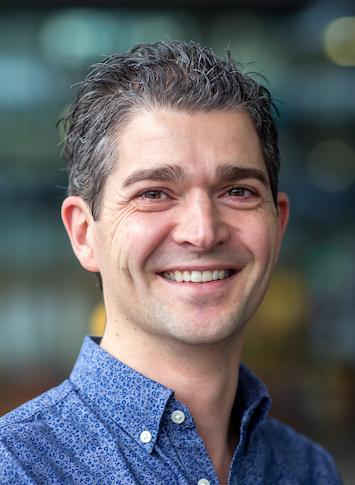
Advanced Feedforward and Iterative Learning Control for Precision Mechatronics
Dr. Tom Oomen (Eindhoven University of Technology)
Do you also have a system that has the same error in each task? In this tutorial, we investigate advanced feedforward and iterative learning control (ILC) algorithms to improve the performance of your system. The tutorial consists of several topics.
First, traditional ILC algorithms can learn from measured error signals of previous tasks. After just a few iterations, such algorithms can compensate any repeating disturbance perfectly. We will first explore which applications are suitable for ILC, and a very simple test allows you to immediately determine the achievable ILC performance of your system. A complete design framework that resembles standard loop-shaping control techniques is presented, which guarantees fast and safe learning. Essential technical aspects such as robust and monotonic convergence as well as non-causal filtering are explained in an intuitive and directly usable manner. An overview of optimization-based ILC techniques is outlined, as well as their advantages and disadvantages.
Second, advanced feedforward is investigated. Indeed, ILC algorithms achieve exceptional performance for repeating tasks, however, they are far from standard in industrial practice. One of the key reasons is that iterative learning control cannot deal with varying tasks. Even a small variation can lead to disastrous performance deterioration. Many industrial systems perform such very similar yet slightly different tasks, necessitating new concepts for advanced feedforward control, including high-order feedforward (snap, jerk, etc.), input shaping, automated tuning, etc. These new concepts have been developed in recent years, whereas most of these ‘iterative learning control’ (ILC) techniques have been developed in the past two decades and many successful industrial applications have been reported, in particular in precision mechatronics such as printing systems, additive manufacturing, wafer scanners, pick-and-place machines, etc.
Throughout, extensions of the design framework to multivariable systems are outlined, as well as several recent connections to machine learning techniques. The tutorial is of interest to anyone interested in improving the performance of their control system. It is aimed to attract a broad audience: no prior knowledge of learning control is required and only a basic knowledge of feedforward/feedback control (including block diagrams, frequency domain, etc.) is assumed. The tutorial will also be of interest to experts in the field, since it covers recently developed techniques as well.
Bio:
Tom Oomen received the M.Sc. degree (cum laude) and Ph.D. degree from the Eindhoven University of Technology, Eindhoven, The Netherlands. He held visiting positions at KTH, Stockholm, Sweden, and at The University of Newcastle, Australia. Presently, he is associate professor with the Department of Mechanical Engineering at the Eindhoven University of Technology. He is a recipient of the Corus Young Talent Graduation Award, the IFAC 2019 TC 4.2 Mechatronics Young Research Award, the 2015 IEEE Transactions on Control Systems Technology Outstanding Paper Award, the 2017 IFAC Mechatronics Best Paper Award, the 2019 IEEJ Journal of Industry Applications Best Paper Award, and recipient of a Veni and Vidi personal grant. He is Associate Editor of the IEEE Control Systems Letters (L-CSS), IFAC Mechatronics, and IEEE Transactions on Control Systems Technology. He is a member of the Eindhoven Young Academy of Engineering. His research interests are in the field of data-driven modeling, learning, and control, with applications in precision mechatronics.

